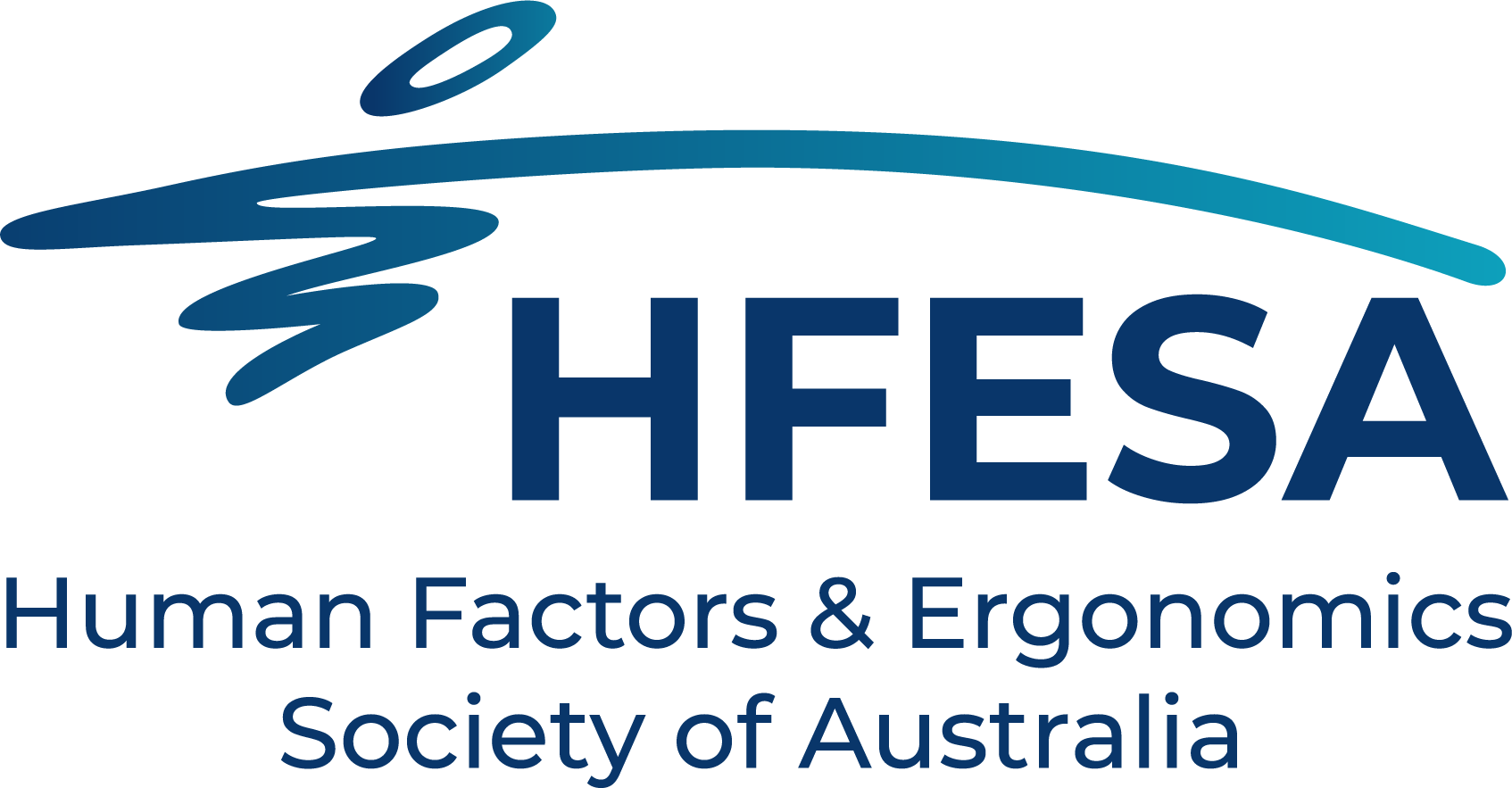The Humans Factors and Ergonomic Society of Australia (HFESA) has produced a podcast featuring a conversation between Professor Anjum Naweed, and Sharon Todd, the President of HFESA. The podcasts can be accessed via the HFESA website or the HFE Hub website.
Professor Anjum Naweed is from the Appleton Institute for Behavioural Science in South Australia—the Adelaide-based campus of CQUniversity. Anjum is a Certified Professional Ergonomist with a background in psychology and expertise in human factors and systems thinking. He has over 15 years of experience across a range of industry sectors and occupational settings. Anjum’s research has received many accolades in recognition of his excellence in research activity, publication, and engagement and he has twice received the Vice-Chancellor’s Award for Outstanding Researcher of the Year (2013; 2018) at his university. He currently serves a Scientific Editor for Applied Ergonomics, an international journal aimed at ergonomists and all those interested in applying ergonomics and human factors in the design, planning and management of technical and social systems at work or leisure. He has been a Scientific Convenor for the Australasian Simulation Congress on five consecutive occasions, and for the Annual HFESA Conference twice.
Exploring Innovative Research Projects and Wearable Technologies
The podcast delves into the fascinating realm of innovative research projects and the use of wearable technologies. Professor Naweed shares insights into working on the Goldilocks Project in the rail domain. This project aims to address health and well-being issues among train drivers and explores the impact of changes in the work environment over time.
The discussion highlights the role of wearable technologies in data collection and analysis. Accelerometers attached to the thighs of train drivers provide valuable information about their movement patterns, transitions between sitting and standing, and sedentary behaviour. These wearables offer researchers a deeper understanding of the physical demands, risks, and potential health hazards associated with sedentary work environments.
Challenges and Opportunities in Industry-Academia Collaborations
The podcast covers the challenges encountered in industry-academia collaborations. The different working cultures and priorities between academia and industry can pose hurdles in establishing fruitful partnerships. While academics strive for publication and disseminating findings, industry professionals often prioritise confidentiality, commercial viability, and risk management. Overcoming these challenges requires flexibility, active listening, and a shared understanding of each other’s values and concerns. By finding common ground and aligning goals, researchers and industry partners can foster successful collaborations that result in practical solutions with real-world impact.
Embracing Failure as a Path to Growth and Success
Professor Naweed emphasises the significance of embracing failure as a crucial aspect of the research process. Failures are not to be shunned or hidden away but rather seen as valuable learning experiences. By adopting a growth mindset and proceeding as if success is inevitable, researchers can navigate setbacks with resilience and determination. Sharing failures, acknowledging mistakes, and learning from them contribute to personal and professional growth. It also fosters transparency, allowing others to benefit from the lessons learned. Embracing failure as a natural part of the research journey promotes continuous improvement, innovation, and the eventual attainment of success.
Why Tune In?
These podcasts are a series of educational podcasts from the Human Factors and Ergonomics Society of Australia (HFESA). These podcasts focus on the connection between human capabilities and good design. Their aim is to promote the field of Human Factors and Ergonomics and provide guidance and professional development.
The podcast is relevant to individuals interested in human factors, ergonomics, organisational psychology, and research methodology. Professionals such as researchers, academics, consultants, and practitioners in these domains would benefit from the content discussed.
Please Share
This page can be shared on social media platforms and forums (e.g. Twitter, LinkedIn, Facebook). It would also be beneficial to share the podcast with individuals or organisations interested in the topics discussed in the podcast. When sharing, please use the following hashtags: #HFES #HFESA #HFEHub #OccupationalHealthandSafety #WorkDesign #HumanFactors #Ergonomics #RailIndustry #FatigueManagement #IndustryResearch #SafetyCulture #OrganisationalPerformance #WorkplaceWellbeing #ResearchInsights #SafetyAwareness #ProfessionalDevelopment #CollaborationInResearch #PodcastDiscussion #LearningFromFailures #WorkplaceEfficiency #InnovationInSafety #ResearchInPractice #IndustrialSafety #SafetyFirst #WorkplaceInsights
https://www.ergonomics.org.au/podcasts/
Prepared by Michael Dubos

